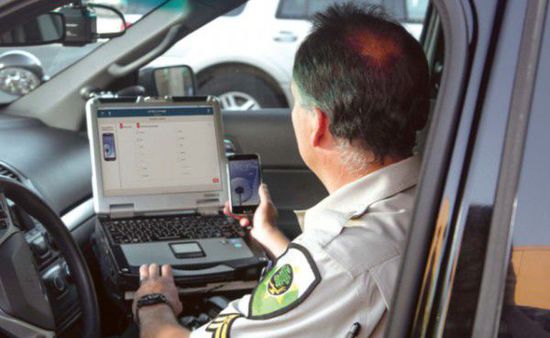This is Scientific American — 60-Second Science. I'm Larry Greenemeier.
Fifty years ago, British inventors made and marketed the first electronic "breathalyzer". The alcohol gauge has become standard issue for U.S. law enforcement cracking down on drunk driving.
In a sign of the times, U.S. police are now hoping to enlist the so-called "Textalyzer." The device, in development by a company called Cellebrite, plugs into a driver's smartphone and can tell police whether that person sent a text, e-mail or some other type of electronic message. Much of this information could be found by checking the device's call log and messaging apps, but the Textalyzer aggregates all of that information in one place.
Sending or reading a text typically takes a driver's eyes off the road for about five seconds. At 55 miles per hour, that's like driving the length of an entire football field with your eyes closed, according to the National Highway Traffic Safety Administration. The NHTSA reports that in 2015 nearly 3,500 people were killed, and 391,000 were injured in motor vehicle crashes involving drivers who were talking on the phone or texting.

But several open questions remain related to the Textalyzer. For one, it's not clear how officers will access a device if it's password protected. Textalyzer's legality is also up for debate. In 2014 the U.S. Supreme Court ruled that police officers cannot legally search a mobile phone for content created within the past 180 days without a warrant. Regardless, several states plan to test the device.
Over the years all sorts of bad advice has been given to help people "beat" Breathalyzer tests. Let's hope the only way people beat the Textalyzer is by keeping their hands on the wheel and their eyes on the road.
Thanks for listening the Scientific American — 60-Second Science Science. I'm Larry Greenemeier.











